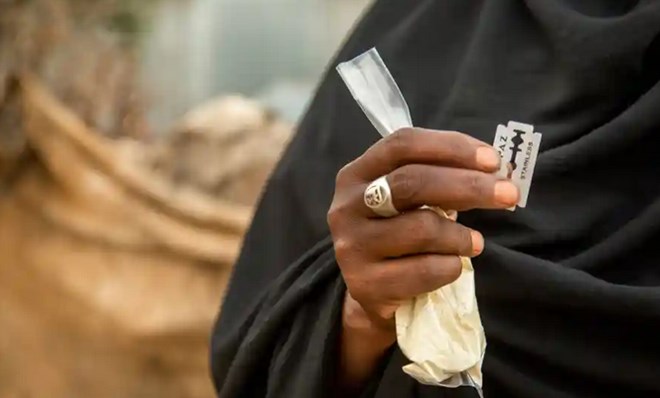Pressenza
Saturday February 5, 2022

Two million more girls will be subjected to genital mutilation by 2030 because of obstacles resulting from crises such as covid-19, United Nations agencies said on the occasion of the International Day of Zero Tolerance for Female Genital Mutilation on Sunday, 6 February.
The pace of progress against the harmful practice must be 10 times faster to reach the global goal of zero cases by 2030, warned the United Nations Population Fund (UNFPA).
Campaigns to reach that goal, in 31 countries in Africa, Asia and the Middle East, require $2.4 billion and so far, only $275 million is available, leaving a shortfall of $2.1 billion, according to UNFPA.
A World Health Organization (WHO) study estimated that stopping female genital mutilation in these countries now would save up to 60 per cent of the $1.4 billion in health costs related to or resulting from the practice.
More than 200 million girls and women alive today have undergone female genital mutilation. Cutting includes procedures that intentionally alter or damage female genitalia for non-medical reasons.
The WHO stresses that this practice constitutes an “extreme form of discrimination based on sex, and is internationally recognised as a violation of the fundamental rights of girls and women”.
In particular, the rights to health, safety and physical integrity, as well as freedom from torture or cruel, inhuman or degrading treatment.
For example, in Somalia, a health and demographic survey conducted in 2020 showed that 99% of women between the ages of 15 and 49 underwent female genital mutilation, most of them between the ages of five and nine.
The survey also reported that 72% of women believe it is an Islamic requirement, although religious leaders have said Islam condemns it.
UNFPA stresses that female genital mutilation, rooted in gender inequality and power imbalances between men and women, “perpetuates these inequalities by limiting opportunities for women and girls to exercise their rights and realise their potential”.
She warned that humanitarian crises such as covid, now entering its third year, have hampered efforts to prevent FGM/C, and estimated that two million more girls will be subjected to the practice over the next decade than before the pandemic.
Progress has been made – girls are a third less likely to undergo the practice than they were 30 years ago – but progress in campaigns is not fast enough because of a lack of resources.
“If the trend continues, the number of girls and women undergoing female genital mutilation will increase dramatically over the next 15 years, resulting in higher national health costs related to their care,” WHO warned
UNFPA believes that empowering girls through access to education, health care and income opportunities can accelerate the elimination of female genital mutilation.
Programmes in the 30 or so countries where the practice occurs include providing services and response to affected and at-risk girls, developing and enforcing laws, and strengthening institutional capacity to undertake the eradication of female genital mutilation.